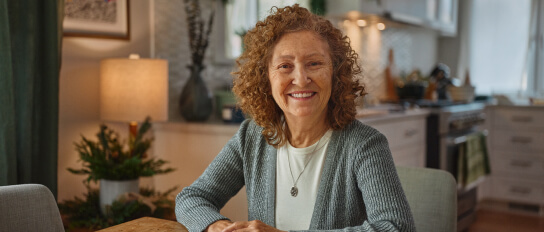
Why Fall Prevention Matters
Every second of every day, an older adult in the United States suffers a fall. According to the Centers for Disease Control and Prevention (CDC), falls are the leading cause of injury-related deaths among adults 65 and older. They also account for over 3 million emergency department visits annually.
September’s Fall Prevention Awareness Month provides an opportunity for families across Mansfield, CT to make proactive changes that reduce risks and help older adults stay confident at home.
Understanding Risk Factors
Falls are usually the result of multiple risk factors. Common contributors include:
- Environmental hazards: Loose rugs, poor lighting, uneven surfaces, or clutter
- Health conditions: Vision loss, arthritis, diabetes, or neurological disorders
- Medications: Some prescriptions cause dizziness, drowsiness, or low blood pressure
- Deconditioning: Weak muscles and poor balance from inactivity
- Cognitive decline: Memory loss or confusion that increases fall risk
Find statewide information via Connecticut Aging and Disability Services and injury prevention resources at the CT Department of Public Health.
Room-by-Room Home Safety Checklist

Non-medical home updates can significantly reduce fall risk. Families can start with this checklist:
- Bathroom: Install grab bars (use a qualified installer), add non-slip mats, consider a shower chair or raised toilet seat
- Kitchen: Store items at waist height to avoid reaching or bending
- Living areas: Remove clutter, secure cords, and use sturdy furniture for balance
- Stairs: Ensure railings on both sides, improve lighting, and use non-slip treads
- Outdoors: Keep walkways clear of leaves, snow, or ice and ensure sturdy railings on steps
See room-by-room tips from the National Council on Aging.
Exercise as a Fall Prevention Strategy

Strength and balance training help prevent falls. Follow the CDC’s guidelines for older adults and ask a clinician about programs like tai chi, gentle yoga, or “A Matter of Balance” that meet your needs.
Note: Home Instead provides non-medical encouragement and support for safe routines; clinical evaluation, physical therapy, and exercise prescriptions should come from licensed healthcare professionals.
Nutrition and Hydration
Healthy bones, muscles, and energy reduce the risk of falls. Seniors should focus on:
- Calcium and vitamin D for bone health
- Protein for muscle maintenance
- Plenty of fruits, vegetables, and whole grains
- Adequate water intake to prevent dizziness
See senior-friendly guidance from the National Institute on Aging.

Assistive Devices and Technology
Assistive tools make homes safer and help seniors maintain independence. Consider:
- Canes or walkers for stability (as recommended by clinicians)
- Non-slip shoes with good support
- Grabbers for reaching items
- Fall detection systems or smart watches with emergency alerts
Explore supports via CT Aging and Disability Services and the CT Department of Public Health.
Encouraging Seniors Who Resist Change
Some seniors may resist safety modifications, believing they signal loss of independence. Families can:
- Present fall prevention as a way to extend independence, not limit it
- Involve older adults in decision-making
- Start with small, non-intrusive changes
How Home Instead Supports Fall Prevention

Home Instead Northeastern, CT provides non-medical in-home support aligned with Connecticut guidelines, including:
- Assistance with safe, everyday mobility and transfers
- Reminders and companionship during daily routines
- Light housekeeping to help keep pathways clear
- Hydration and nutrition reminders and light meal preparation
We do not provide skilled nursing or medical services. For clinical concerns, evaluations, or therapy, please contact licensed healthcare professionals.



